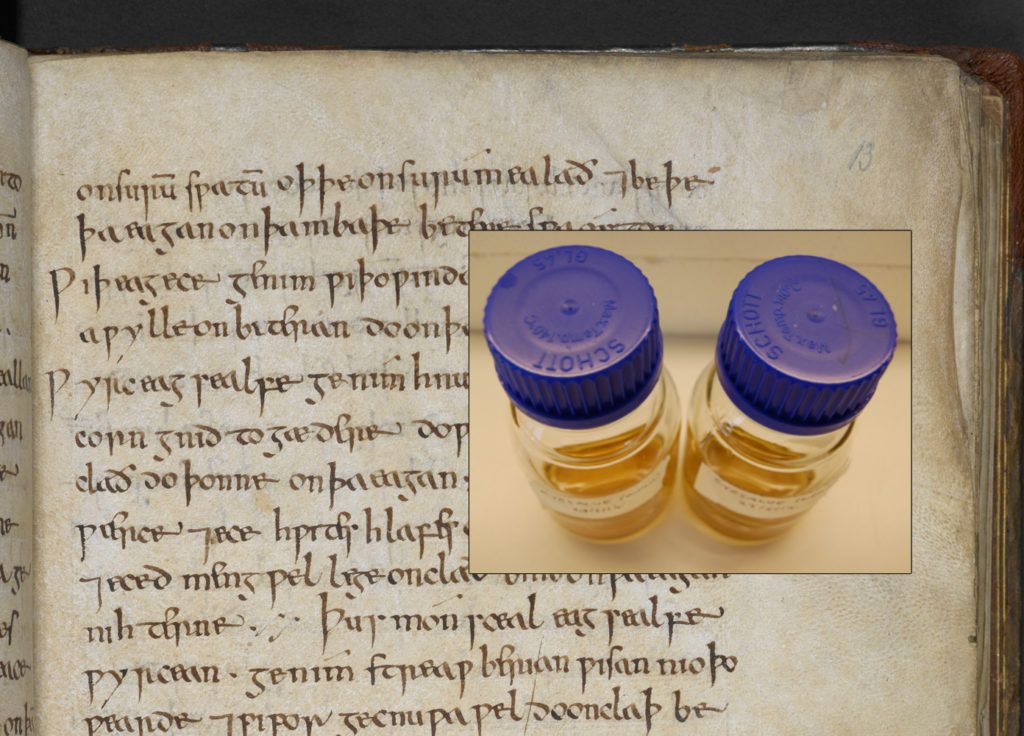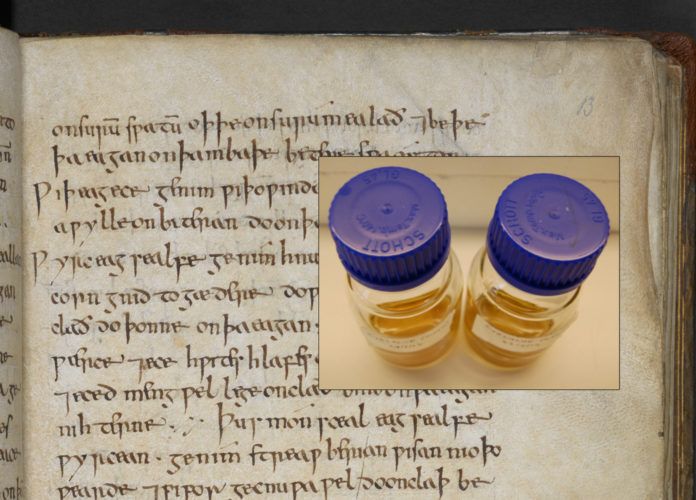
Image credit: Bald’s Leechbook. (British Library/Public Domain) & University of Warwick
Antibiotic-resistant has become one of the biggest public health concerns in the world. Bacterial Biofilm infections are said to be costing the UK a massive 1 billion pounds a year. Scientists are doing their best to come up with viable solutions to overcome this threat.
But a working solution may not be so hard to find as a group of British scientists from the University of Warwick were able to revive a 1000-year-old medieval remedy successfully. Moreover, they were able to use this recipe called, ‘Bald’s eyesalve’ as a successful treatment to kill antibiotic-resistant bacterial colonies without any side effects to healthy cells.
The ancient remedy that triumphed over modern antibiotics came from a 1000-year-old manuscript from medieval England called, ‘The Bald’s Leechbook’. The concoction includes Garlic, Onion or Leek, Cow Bile and wine. Some of these are believed to be full of antiseptic properties. And this study’s observations seem to be confirming this belief as this remedy proved to be lethal to some virulent bacteria which were resistant to modern-day antibiotics.
According to the researchers, Bald’s eyesalve is only effective in its final form. And when they tried to separate and purify each element they were not as effective as before. This suggests that these ingredients might be bouncing medicinal properties from one another to create a perfect concoction to kill the biofilm.
The researchers had to be sure that they had the correct recipe from the old English translation. So they made 75 batches of it and made 15 of them with onion and another 15 with leek. Taking lessons from previous studies, researchers knew that Bald’s eyesalve works against Staphylococcus aureus which is responsible for ‘Golden staph’.
Staphylococcus aureus is known for its resistance to antibiotics. And they build biofilms, the sturdy, hard to destroy structures of bacteria. To destroy these biofilms an antibiotic should be 100 to 1000 times stronger than a normal bacterial infection treatment. Even then, some infections do not respond and to avoid blood poisoning, the infected area or limb would have to be removed or amputated.
Apart from being lethal to Staph biofilm infections, Bald’s eyesalve has proven to work against Acinetobacter baumanii, Stenotrophomonas maltophilia, S. epidermidis and S. pyogenes. They all are trouble-causing antibiotic-resistant bacteria which also forms biofilms. With the results of the new study, they believe this remedy could successfully treat diabetic foot infections, which is known to be a super-resistant biofilm infection. Without proper treatment, this infection become untreatable and a heavy burden on the healthcare and economy.
This may enhance the future of antibiotics by further understanding of botanicals and other natural ingredients and their effectiveness when combined with each other.
The study is now published in the journal Scientific Reports.

